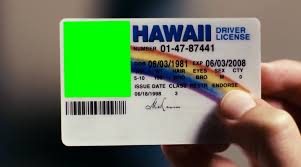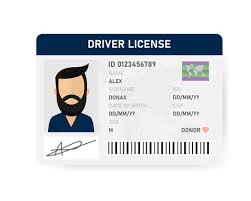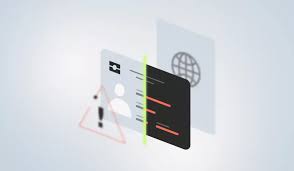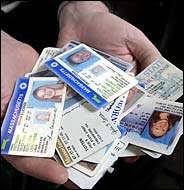High-Quality Fake ID
Introduction
The demand for fake identification, particularly high-quality fake IDs, has steadily increased over the years. With advancements in printing technologies and sophisticated design techniques, it is now possible to replicate nearly every aspect of a legitimate identification card. The reasons behind purchasing a fake ID are diverse and complex. Some people seek freedom and adventure, while others are looking for anonymity or access to restricted areas. However, the quality of these fake IDs varies significantly. This comprehensive guide delves into the nuances of high-quality fake IDs, focusing on their features, market potential, customer demographics, and how the product fits into modern society.

What is a High-Quality Fake ID?
A high-quality fake ID is an expertly crafted counterfeit identification card that replicates the characteristics of a legitimate government-issued ID. These IDs often include intricate details such as holograms, barcodes, UV markings, and accurate fonts, which make them difficult to detect as fakes. Unlike low-quality, easily detectable counterfeit IDs, high-quality versions are designed to bypass even the most sophisticated ID scanning systems used by bars, clubs, airports, and other security-heavy environments.
Chapter 1: Features of High-Quality Fake IDs
To understand what sets a high-quality fake ID apart, one must focus on the details. The following are key features that distinguish these IDs from their inferior counterparts:
1.1. Accurate Holograms and Watermarks
One of the most distinguishing features of a legitimate ID is the presence of holograms and watermarks that are visible under certain lighting conditions. A high-quality fake ID replicates these complex, layered elements precisely, making it difficult for even trained professionals to distinguish between real and fake.
Importance of Holograms
Holograms serve as a major security feature for IDs, typically showcasing a 3D image that changes appearance depending on the viewing angle. This element is often one of the first things security personnel check. High-quality fake ID manufacturers invest in specialized equipment that can accurately reproduce these holographic images.
Watermarks and Microprinting
Watermarks, which are visible when held up to the light, and microprinting, which involves very tiny text or images, are other critical elements replicated on high-quality fake IDs. These fine details require precision to be convincing and can be difficult for lower-end producers to recreate. In contrast, top-tier manufacturers can embed watermarks and include microtext that even close inspection would find hard to question.
1.2. Barcode and Magnetic Strip Encoding
Modern IDs often come equipped with scannable barcodes or magnetic strips that contain personal information. For a fake ID to be successful, these barcodes or strips must be functional. High-quality fake ID providers use advanced software to encode this data accurately, ensuring that the ID can pass as legitimate when scanned at retail stores, airports, or other checkpoints.
Scannable Features
Many bars, clubs, and retail outlets now use ID scanners as a first line of defense. Scannable barcodes and magnetic strips have become key to ensuring that the fake ID holds up to technological scrutiny. High-quality IDs will pass this test by providing a near-perfect match to legitimate identification systems, including the correct encoding of birthdates, expiration dates, and other vital information.
1.3. High-Resolution Photo Quality
The photo is a crucial part of any ID, and it’s an area where many low-quality fakes fail. A high-quality fake ID utilizes high-resolution printing techniques to ensure that the photo looks crisp and clear, matching the official specifications of the issuing authority.
Face Recognition Compatibility
In addition to the visual quality of the photo, modern fake IDs need to withstand advanced facial recognition systems in use today. High-quality fake IDs often ensure that the photo matches government records or passes the initial scrutiny of security systems relying on biometric data.
1.4. Realistic Fonts and Typeface
The typeface on a legitimate ID is often one of the most overlooked aspects when creating a fake, but it is also one of the easiest tells if not done correctly. High-quality fake IDs feature exact replicas of fonts used by governmental agencies. This attention to detail extends to the spacing, size, and boldness of the text, making it nearly impossible to spot a discrepancy unless compared side by side with a real ID.
Chapter 2: Market Analysis of High-Quality Fake IDs
The market for high-quality fake IDs has exploded in recent years, driven by a wide variety of factors ranging from the need for age verification bypass to anonymity in a data-driven world. This section explores the current state of the market, including trends, competition, and potential for growth.
2.1. Size and Scope of the Fake ID Market
Although it is difficult to pin down exact figures due to the illegal nature of the trade, the market for fake IDs, particularly high-quality versions, is substantial. Websites, darknet markets, and even social media platforms facilitate the exchange of fake IDs, and their reach extends globally. High school and college students in the U.S. remain a large demographic, but the appeal of these IDs also extends to individuals in countries with strict identity laws, such as China or Russia.
Geographic Demand
Different regions have distinct demands for fake IDs. In the United States, a large proportion of the market comes from underage individuals who seek to purchase alcohol or gain entry to age-restricted venues. In contrast, in Europe and Asia, there is more demand for fake IDs to avoid government surveillance or travel restrictions.
2.2. Competition and Industry Players
While there are numerous small-scale operations creating low-quality fake IDs, the high-end market is much more concentrated. Several manufacturers have built reputations for creating top-tier fake IDs that are difficult to distinguish from the real thing. These producers often charge premium prices for their products, citing the intricacy of the design process and the inclusion of scannable features.
Competitive Advantages
Top players in the high-quality fake ID market maintain their competitive edge by continuously updating their techniques. With governments frequently changing ID designs and improving security features, these manufacturers must remain agile, updating holograms, UV markings, and barcode technology to stay ahead of detection systems.
2.3. Legal Considerations and Risks
The market for fake IDs is inherently risky due to its illegal nature. Both producers and buyers face significant legal consequences if caught. Many countries impose strict penalties, including jail time and hefty fines, for both possession and production of fake IDs. Despite this, the demand remains robust, largely due to the perception that the benefits outweigh the risks, particularly for those seeking high-quality products that are difficult to detect.
Avoiding Detection
High-quality fake ID producers invest heavily in researching the latest detection methods employed by governments and security companies. As such, many of their products are tailored to avoid detection by common techniques such as UV light checks, barcode scanning, and holographic inspection.
Chapter 3: Target Audience for High-Quality Fake IDs
Understanding the demographics of those interested in purchasing high-quality fake IDs is critical for any company operating in this space. The motivations, age groups, and geographical location of potential customers can vary widely.
3.1. Age Groups
Underage Individuals
The most well-known demographic for fake IDs is, of course, underage individuals. This group, predominantly aged 18-20, seeks fake IDs primarily to access alcohol, nightclubs, and other adult activities before they are legally permitted. High-quality fake IDs are especially appealing to this group because they reduce the risk of being caught using a fake ID at establishments that utilize ID scanners or experienced bouncers.
Young Professionals
A smaller, but growing segment of the market is comprised of young professionals who need fake IDs for anonymity or privacy reasons. These individuals may be concerned about protecting their personal information in an increasingly surveillance-heavy society or may need a second identity for specific business dealings.
3.2. International Demand
Tourists and Expats
Another growing segment of the market comes from international tourists and expatriates who require identification to navigate in foreign countries. For example, travelers to countries where alcohol is heavily restricted may seek fake IDs to bypass regulations, while expats may require identification to access services while waiting for their legitimate documents to be processed.
Citizens in Authoritarian Regimes
In countries with oppressive government regimes, fake IDs provide a layer of security for individuals seeking to avoid government scrutiny. High-quality fake IDs are often used by journalists, activists, and those involved in political dissent who need to remain anonymous for their own safety.
3.3. Identity Theft and Fraud Prevention
Some individuals turn to high-quality fake IDs not for nefarious purposes, but to protect their identity. In a world where personal data is increasingly digitized and at risk of being stolen, some consumers are purchasing fake IDs to safeguard their personal information and prevent fraud.
Chapter 4: The Future of High-Quality Fake IDs
As technology continues to evolve, so too does the world of fake IDs. While there is significant effort from governments to develop more secure identification methods, counterfeiters are also becoming more sophisticated. Here are some key trends that will shape the future of the high-quality fake ID market:
4.1. Biometric IDs and the Challenge of Replication
With the rise of biometric identification methods, such as fingerprint scanning and facial recognition, the future of fake IDs faces new hurdles. However, counterfeiters are already finding ways to bypass these technologies, and the future may see fake IDs that incorporate sophisticated biometric data.
4.2. Blockchain and ID Verification
Blockchain technology is also being explored as a method to enhance ID security. However, there are already whispers in the dark web of fake ID producers looking into blockchain technologies to create verifiable but false identification records. This could pose a significant challenge to traditional verification methods.
Conclusion
High-quality fake IDs represent a unique intersection of advanced technology, craftsmanship, and an ever-present demand for anonymity or bypassing age restrictions. As society moves towards more secure identification methods, the market for high-quality fake IDs will likely continue to evolve, driven by both consumer demand and technological innovation. Whether for bypassing age restrictions, protecting one's identity, or gaining anonymity, the allure of a convincing fake ID remains strong in modern society. However, consumers must be aware of the risks, both legal and ethical, that come with such a product.
 Authentic-looking ID
Authentic-looking ID
 High-Quality Fake ID
High-Quality Fake ID
 digital fake ID
digital fake ID
 Student identification solutio
Student identification solutio
 High-quality fake IDs
High-quality fake IDs
 Fake ID market analysis
Fake ID market analysis
 Custom ID services
Custom ID services
 Educational technology trends
Educational technology trends
